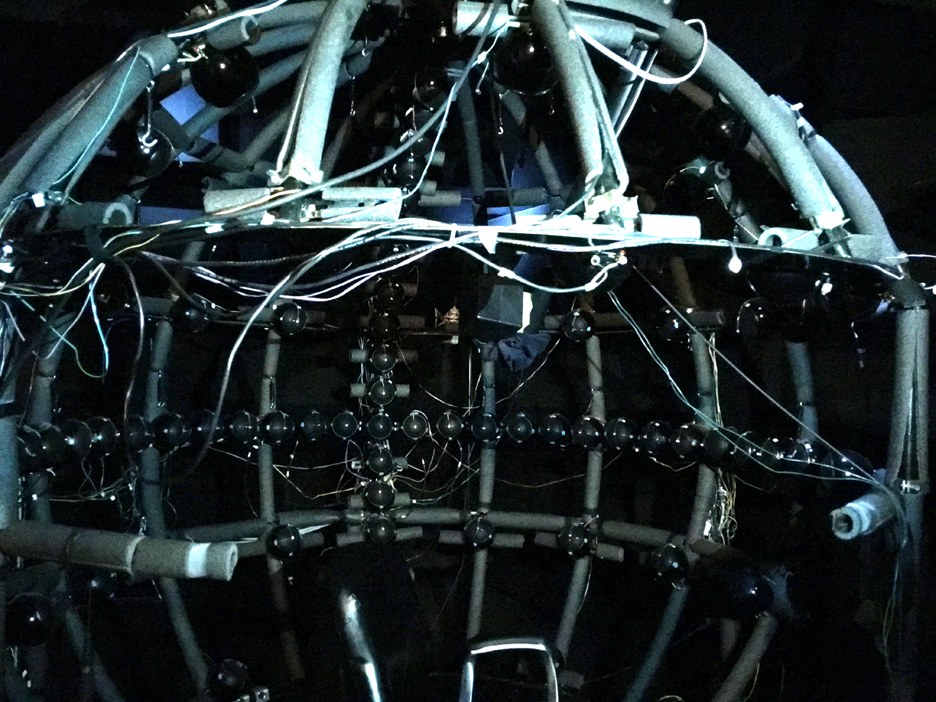
Back in grade school, whether music class or chorus was your favorite time of the week or the most terrifying, practicing music probably helped you in ways you didn’t know about. Even your teachers may not have realized this, but experts now know that practicing a musical instrument, including the voice, helps you to learn better in general.
Research shows that learning new musical skills reinforces existing neural pathways and helps create new ones, forming connections between the right and left hemispheres of the brain in ways that no other activity does.
SMART MUSICAL KIDS
In early childhood, when music is best learned through play, singing helps develop a readiness for speech and cognitive activities in general.
With older children and young adults, research in U S schools shows that children who have music training surpass other kids in math, English, and test-taking in general. They get higher SAT scores. As a demographic, children engaged in musical activities also express a more cooperative and enthusiastic attitude in school.
Around the world, countries with the highest academic achievement prioritize and fund extensive music education.
So, here’s my theory…
Music reaches deep emotionally and touches us on a level that words often can’t reach. So not only are there biological reasons for music making us smarter; I’ll wager that music also makes us smarter because when we master a difficult skill that is so rewarding, so communal, so emotionally powerful, and SO MUCH FUN, we are more enthusiastic about the process of learning in general. We discover through experience that learning, and sticking with it even when it’s tough, is worth it. Playing music makes us want to be better learners (which makes us smarter).
SINGING FOR AGING
You may be thinking “Too late for me — I’m not a kid anymore!”

Picture Provided by the Young@Heart Chorus
Yes, your school days are long gone, but that doesn’t mean you can’t still reap the benefits of song for your brain.
There is evidence that learning music produces measurable and significant changes in the brain and may help to stave off Alzheimer’s Disease and dementia. It has also been found to help people who already have these conditions retrieve old memories and to hold onto new ones.
The group pictured here is a performing group called the “Young at Heart Chorus.” Check them out at www.youngatheartchorus.com.
I teach an early childhood music class at a nursing home, so it’s really an intergenerational class. Some of the residents who attend have dementia and don’t seem to be that aware of what’s going on. But once we start singing, tapping out a beat, and particularly if we sing a song they know from their past, they join right in! The know the words; they smile, they look around. They connect! Now that’s music doing it’s magic in the brain!


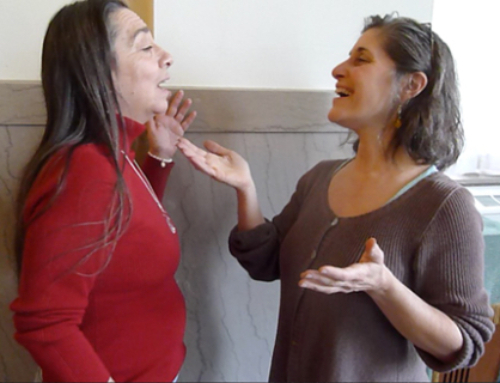
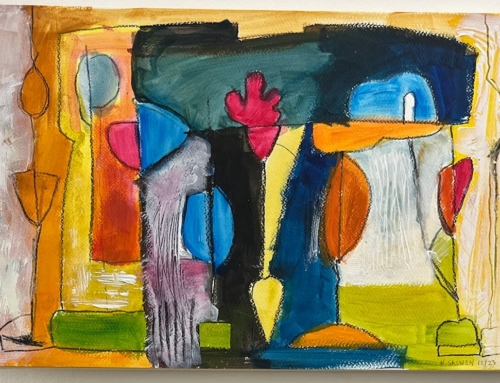
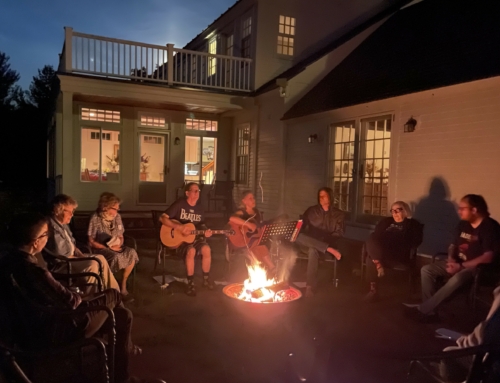
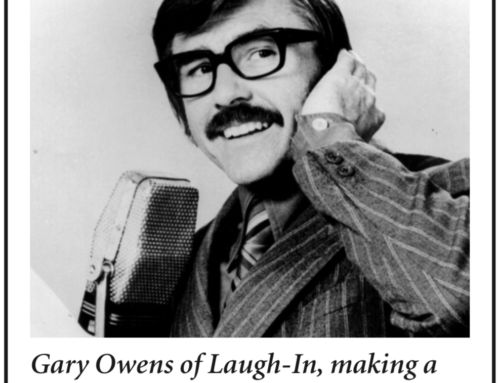
Hi. I have a major problem with singing-it doesn’t sound like music at all and I am sure it is because of the rhythm. I am totally out of the beats. I make the rough rhythm of the song and everyone thinks that I am perfect in rhythm but I am not. I can post my song to hear. Any tips to improve?? I go to 15 different music teachers and drummers and no one even notices my timing problems they said stupid things like I don’t put emotions and so on… but my problem is the rhythm.
Hi Jeremiah,
One of the most important things about rhythm is feeling it solidly in your body. Have any of your teachers talked to you about that? Also, visual cues are important for some people. Rhythm is a little tricky for some people — practicing call and response with simple (and then more complicated) rhythm patterns can really help.
And then there’s the related issue of counting out beats and knowing where to come in, and what happens when in a song.
Which of these would you say is your bigger problem?
If you’d like a free 20 minute online consult I’d be happy to talk with you about ways to approach rhythm that might be helpful — email me at nancy@salwen.net if you want to set that up.
Best,
Nancy
wow, who would have thought so? well, I am going ti start singing always from now on. let us see if its really true what you posted thanks for suing this post it really nice.